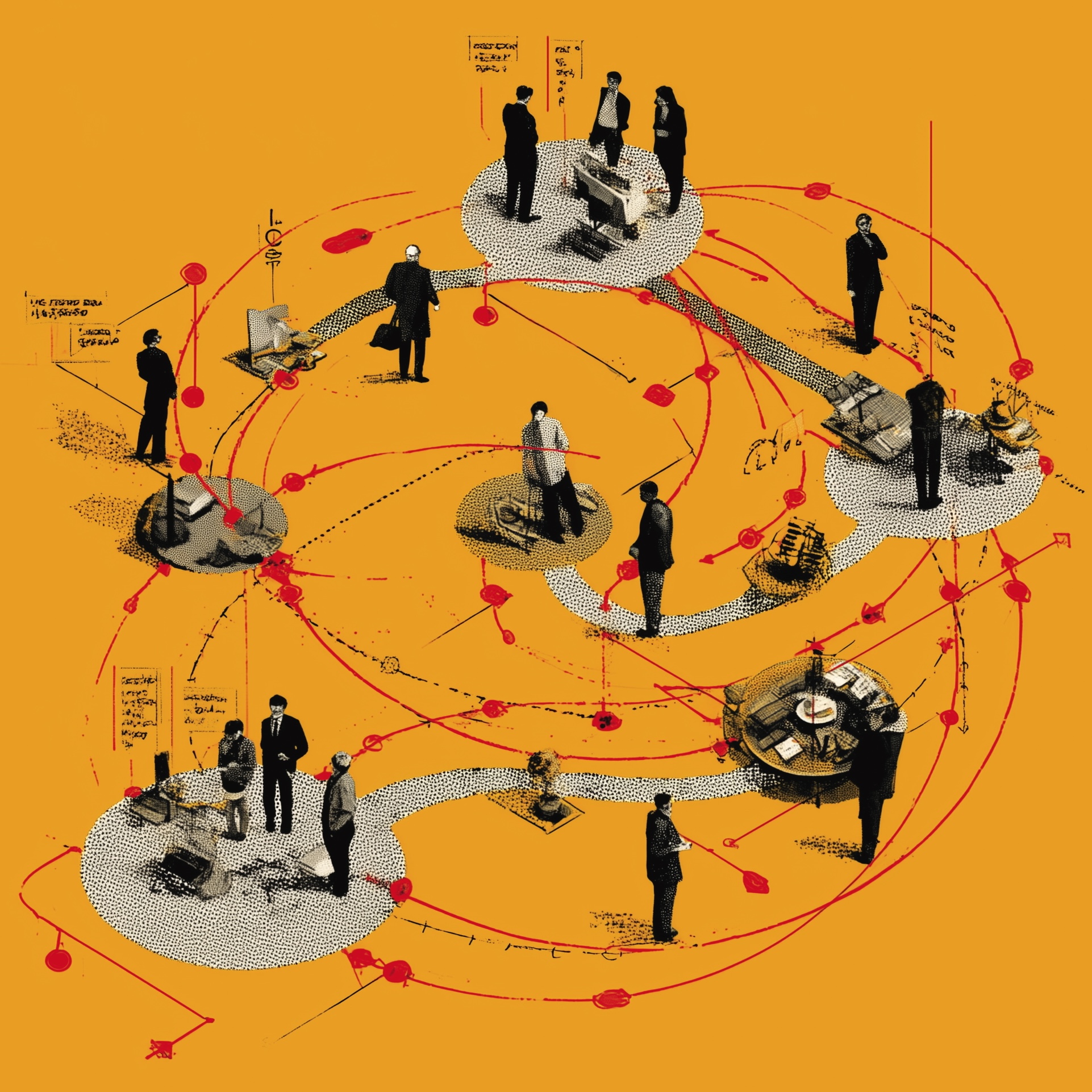Accused and abandoned: how managers become targets for vexatious complaints
Spurious allegations can damage managers’ careers and cost the NHS dear. And too often, sloppy investigations and poor HR support make things worse.
Managing a new team is hard at the best of times. It’s harder still when standards have slipped and colleagues are reluctant to change. And it can become impossible when those colleagues collude to undermine you – and your employer doesn’t give you the support you need.
MiP national officer Claire Pullar spent six years supporting one MiP member – let’s call her Jill – who faced a sustained campaign of vexatious allegations after moving from another part of the UK to take up a senior management job.
“Jill witnessed behaviour that was unprofessional and contrary to contractual requirements,” explains Pullar. When Jill tried to change things, one member of staff raised a spurious grievance and other staff joined in. “I needed to make sure the employer recognised the term ‘mobbing’,” says Claire, “and the intent of this behaviour and the risks it poses to the manager who is the focus of it.”
The grievance was dismissed with no case to answer but Jill’s colleagues appealed. A second investigation also ruled there was no case to answer and found evidence of deliberate collusion to stop Jill from managing her team.
But Jill’s nightmare didn’t end there, because her employer failed to give her the support they had promised. “Without the coaching, mentoring and support required and agreed to, the complainants reassumed previous unmanageable behaviours,” says Pullar. “I agreed that our member should be moved to a role elsewhere that utilised her strengths and put a barrier between her and the complainants.”
Steep rise in vexatious complaints
MiP national officers report a steep rise in vexatious complaints against NHS managers in the last two years. These complaints are often directed against managers trying to implement change or tackle unacceptable behaviour at work, but they can also be driven by personal dislike, jealousy or frustration with other problems in the workplace.
Vexatious complaints show that workplace bullying isn’t always something inflicted by managers on subordinates – it can strike out in all directions. And while there is something of the playground about this behaviour, the impact on a manager’s career and personal life is anything but child’s play.
Jill’s six-year ordeal is unusual, but cases often drag on for months or years, with the same or similar allegations being investigated several times over. Too often, complaints are taken at face value, and employers don’t even check if there is any substance to them before suspending or moving managers.
Poor investigations
The standard of investigations is often poor. MiP member Antonia was removed from managing her team and relocated as soon as complaints were made against her. “The investigation itself was long and cumbersome, with some element of bias,” says MiP national officer Corrado Valle, who supported Antonia. “It wasn’t even clear what the allegations were until the date of the interview with the investigator.”
Valle helped Antonia secure a second, better-run investigation, which absolved her from any wrongdoing and put her back in charge of her team. But by this time she had been absent for nearly a year.
“The longer it takes to complete an investigation, the higher is the reputational risk for the member, especially if they are suspended or moved from their post,” says Valle. “A thorough initial investigation would have highlighted the lack of evidence and would have stopped the proceedings at that point.”
Groundless claims
George Shepherd, MiP’s national officer for the east of England, says groundless discrimination claims are also becoming increasingly common in the NHS. “There’s a culture growing where individuals who are being performance managed will stick in a discrimination claim in an attempt to frighten off their manager,” he explains. With no cap on discrimination awards, and employers reluctant to take action against people who make vexatious claims, some staff see this as “a no-risk strategy”, Shepherd warns.
Shepherd recently supported Richard, a finance director and MiP member, accused of race discrimination on the basis of several largely trivial complaints. The employer appointed an expert, who had previously been asked to look proactively for evidence of discrimination in the workplace, to investigate Richard’s case. “We raised significant concerns that this process looked like a witch hunt as, in my view, the investigator had already concluded there was active discrimination in the workplace,” George explains.
“We were easily able to combat the allegations by proving they were vexatious, and we lined up a number of character witnesses to confirm that Richard does not display the behaviour outlined in the grievance,” adds George. “When I asked the employer what evidence they had to support the allegations, they admitted there was none.”
Staff badly let down
MiP national officer Steve Smith supported a group of MiP members who were the subject of a 14-point anonymous whistleblowing complaint. After a lengthy investigation, in which more than a dozen staff were interviewed, none of the 14 points was found to have any substance.
The ‘whistleblower’, a single member of staff, then submitted a grievance under the trust’s ‘dignity at work’ policy – on almost identical grounds. After another lengthy investigation, all 14 points were again dismissed as being without foundation.
“The employer could and should have recognised that the whistleblowing complaint and the grievance were identical and that an independent investigation had already examined it in detail,” says Smith. “We can see no negative consequences for this member of staff, who wasn’t performing adequately and decided to get their retaliation in first.
“The end result is that the work of the unit has been severely disrupted for no good reason for nearly two years, and staff have been left feeling badly let down by their employer,” he adds.
As well as supporting members by preparing evidence, attending hearings and representing them formally and informally, MiP presses employers to recognise that they have obligations towards people being investigated as well as those who make complaints.
“These MiP members were put under unnecessary stress and pressure, and our view is that their employer failed in the most basic duties of care towards them,” says Smith. “If they had not been union members, they’d have been left isolated, unrepresented and vulnerable.”
“Jill said that without weekly contact and coaching from me, her mental health would have suffered,” adds Pullar. “She also said that without my voice supporting her, the employer would have just blamed her and her career and reputation would have been negatively affected.”
Root out shoddy HR
MiP is urging employers to tackle the scourge of vexatious complaints by rooting out shoddy HR practice and making the conduct of investigations more professional.
Valle says that many vexatious complaints arise after HR or senior management have failed to nip problems in the bud. “Sometimes the inability of managers or HR to identify areas of malcontent among staff and address the issues at the earliest opportunity gives rise to allegations that are unfounded,” he explains. “This is not necessarily malicious, but can be the result of frustration and mistaken beliefs about the facts of the allegation.”
He argues for more expert initial investigations that “should concentrate on the evidence available and advise the complainant of all the possible implications of pursuing an allegation for which there is little or no evidence”.
Shepherd agrees that employers need to assess the credibility of the evidence before suspending or moving accused managers. “They need to do an internal risk assessment and make clear to all individuals that, if the complaints are found to be vexatious, they could face disciplinary action.”
Related News
-

NHS job cuts: you’ll never walk alone
As the NHS redundancies in England loom, Rhys McKenzie explains how MiP will back you, and how members supporting each other and acting collectively is the best way to navigate this difficult process.
-

What now? Seven expert takes on the Ten-Year Plan
The government’s Ten-Year Plan for the NHS in England has met with enthusiasm and exasperation in equal measure. We asked seven healthcare experts to give us their considered view on one aspect that interests, excites or annoys them.
-

NHS job cuts: what are your options?
When politicians start reforming the NHS, there is only one certainty: some people will lose their jobs. But what options might be on the table and how does redundancy work? Corrado Valle explains.